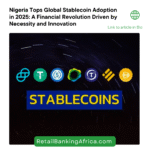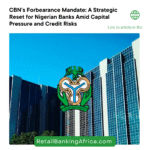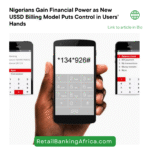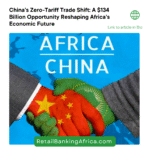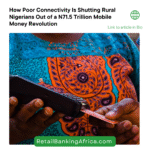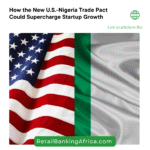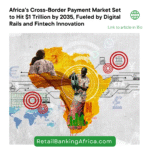Nigeria’s economic engine roars with the energy of millions of small businesses and hustlers. But fueling this engine isn’t just the formal banking sector. A vast, dynamic, and often overlooked world thrives beneath the surface – the informal financial sector. Let’s delve into this vital, yet intricate, part of the Nigerian economy with some eye-opening data.
The sheer size of the informal sector is staggering. According to a 2022 National Bureau of Statistics (NBS) report, over 80% of Nigerian businesses operate informally. This translates to millions of entrepreneurs relying on non-bank sources for financial services. These services encompass a wide range of activities:
- Esusu: Rotating savings and credit associations where members contribute regularly and take turns accessing a lump sum. A 2021 EFInA study revealed that 46.3% of adults in Nigeria participate in esusu.
- Ad hoc money lenders: Individuals or groups providing loans at varying interest rates, often based on social connections.
- Rotating partnerships: Similar to esusu but focused on business ventures, allowing entrepreneurs to pool resources for investments.
The dominance of the informal sector stems from several factors. A 2023 Enhancing Financial Innovation & Access (EFInA) report highlights the limited reach of formal banks, particularly in rural areas. Restrictive loan requirements and complex paperwork further push entrepreneurs towards informal channels.
However, the informal sector is a double-edged sword. While it provides financial inclusion and fosters entrepreneurship, concerns linger. A 2022 Lagos Business School study found that informal lenders often charge exorbitant interest rates, sometimes exceeding 100% per annum. This can trap borrowers in a cycle of debt, hindering economic mobility.
Furthermore, the lack of regulation poses challenges. Consumer protection is weak, and disputes between borrowers and lenders can be difficult to resolve. Additionally, the informal sector is largely invisible to policymakers, making it difficult to design effective financial inclusion strategies.
The future of Nigeria’s informal financial sector lies in bridging the gap. Initiatives promoting financial literacy and responsible lending practices by informal actors are crucial. Regulatory frameworks that encourage formalization without stifling innovation could unlock the sector’s full potential.
In conclusion, Nigeria’s informal financial sector is a powerful force, driving economic activity at the grassroots level. While challenges exist, harnessing its power through responsible practices and fostering collaboration with the formal sector can unlock a new era of inclusive economic growth in Nigeria.

